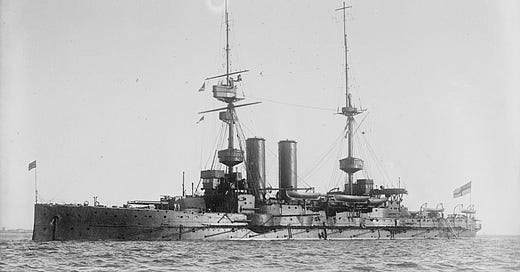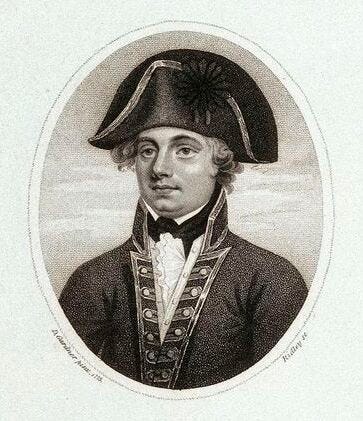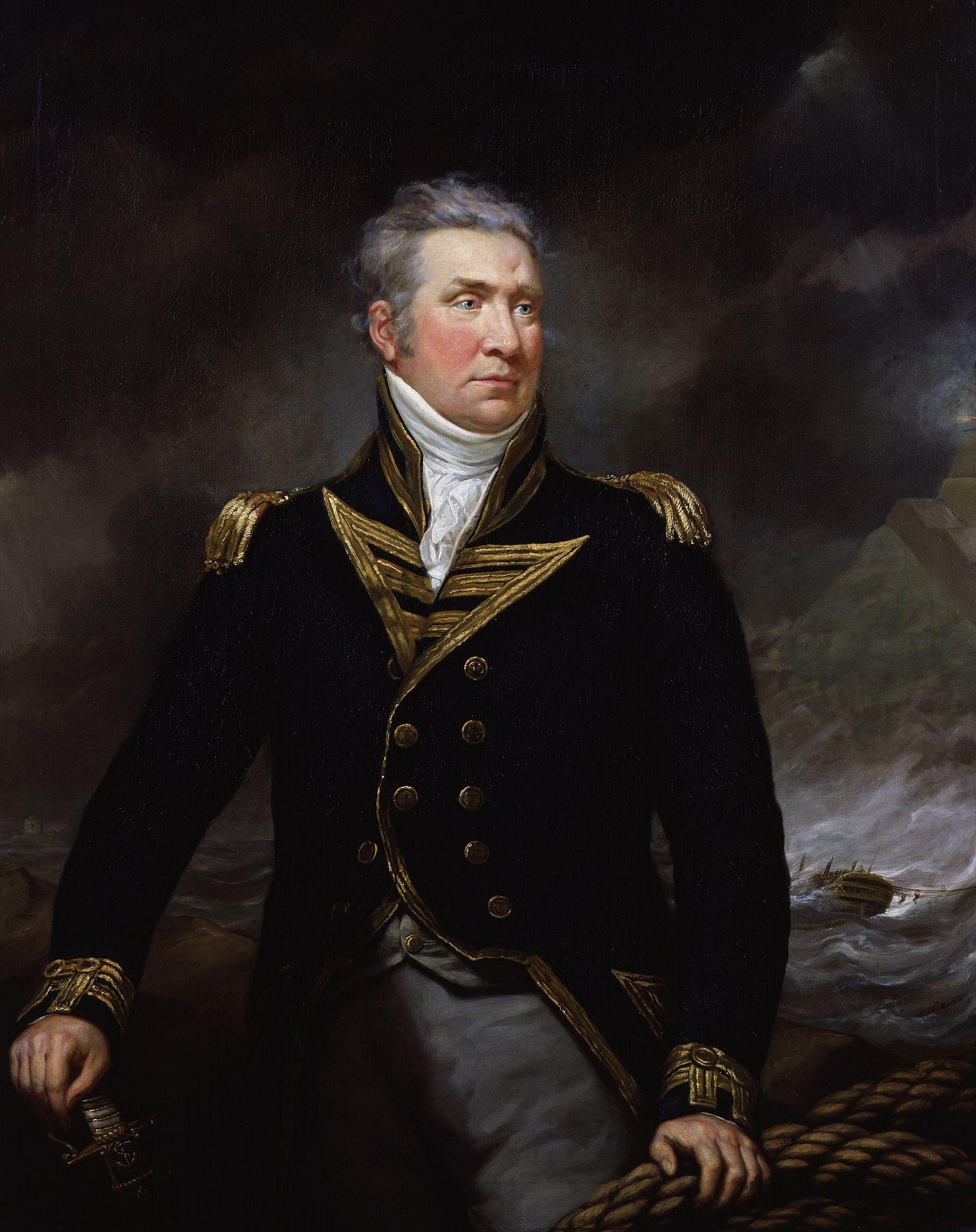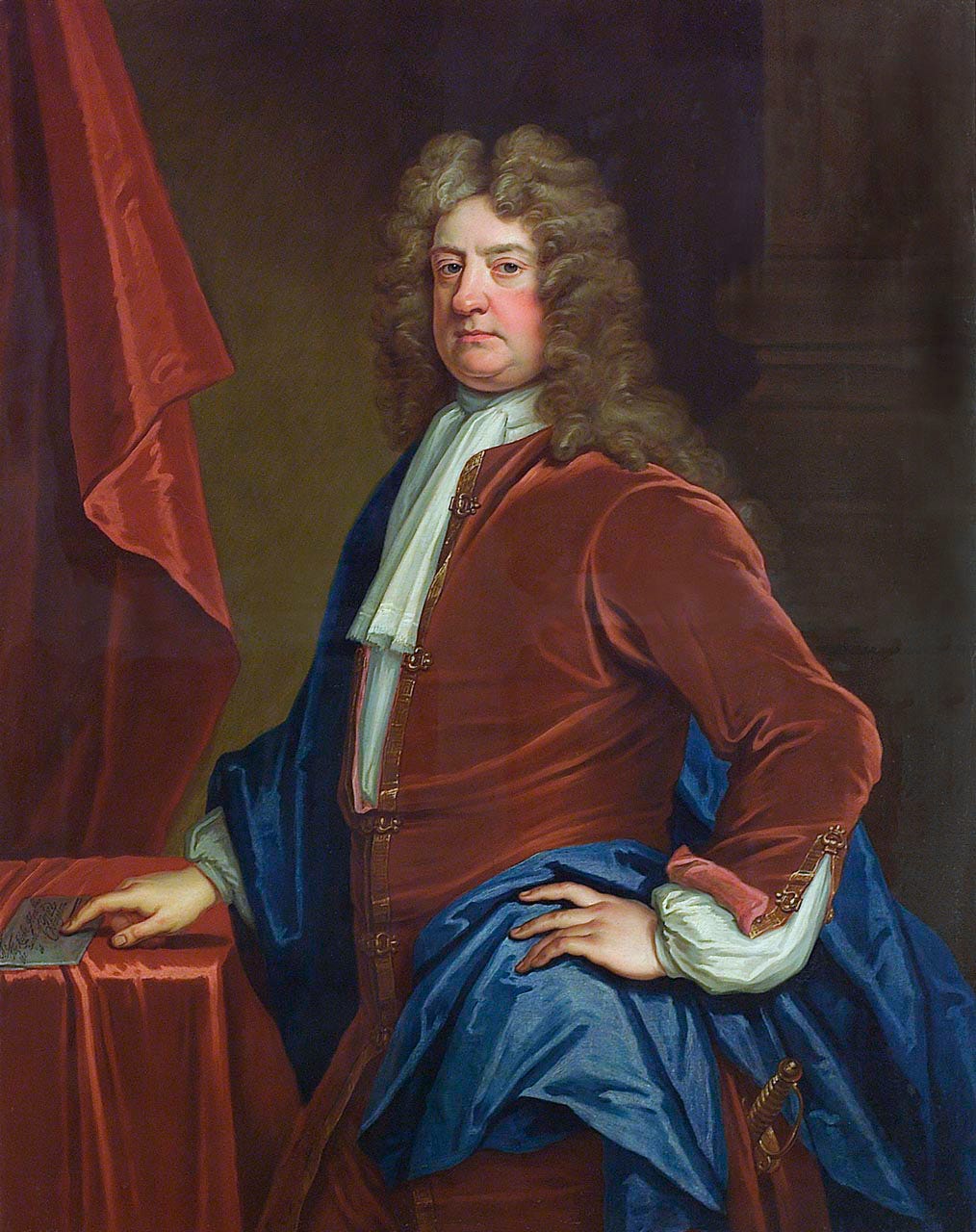Have you ever looked at the name of a warship and wondered where it came from?
Obviously not the ones named after places like the county or town class Cruisers but some of the others?
As I’ve gone back to working on pre-Dreadnought battleships I thought I would look at the Duncan class battleship and the inspiration for their names.
HMS Duncan
Duncan is named after Adam Duncan, 1st Viscount of Duncan (1731-1804), a famous Naval officer who won the battle of Camperdown against the Dutch navy on 11 October 1797. The battle (which deserves its own post at some point) saw Duncan smashing the Dutch force and achieving a significant victory. If Nelson hadn’t won stunning victories at Trafalgar or Aboukir bay then Camperdown would still be a massive impact battle on our consciousness but it paled in comparison to those other Napoleonic war victories.
Duncan’s achievement that day meant that his name would be honoured by the Royal navy for warships and facilities over the coming century.
HMS Albemarle
Named for George Monck, 1st Duke of Albemarle who served the Navy through the Cromwellian period and into the Stuart restoration. Ironically this ship was built at Chatham Dockyard and, perhaps the biggest blight on Monck’s career was his role in the defence against the Dutch raid in 1667 and although Peter Pett took most of the blame Monck pretty much retired afterwards.
However as most people know we don’t talk about the Dutch raid…
Monck’s shining moment in his career was his role in the Four day battle against the Dutch navy the previous year in a battle that makes Jutland look like a disagreement in a paddling pool. Although England lost… and lost a lot… Monck acquitted himself well - again there is a whole other post about this battle once I’ve managed to get my head around the whole story and can track all 142 ships and the politics of it all as it is really out of my area.
HMS Cornwallis.
I have a soft spot for this ship as not only do I live on Cornwallis Avenue but I went to Cornwallis School. I believed that she had originally been named after Charles Cornwallis, the General who won at Camden (lost at Yorktown) and waged war in India successfully but it is actually for his younger brother Admiral William Cornwallis.
Regular readers might have heard his name as he was involved at not only the battle of St Kitts but also the Saintes during the American War of Independence against the Comte de Grasse’ fleet. Captain Cornwallis acquitted himself well in both battles and was incredibly popular with his men.
He would also inflict a defeat on the French in Indian waters in 1793 and again off Brittany in 1795 off Brittany at “Cornwallis’ Retreat”. He was promoted to Admiral of the Red in 1799.
HMS Exmouth
Exmouth was named for Sir Edward Pellew (later Viscount Exmouth) who is a bit of a Napoleonic legend - in fact you will know the name if you have ever read or watched Hornblower.
As a young officer he had served at the pitch battle of Saratoga manning Naval guns in Burgoyne’s army but this didn’t effect his naval career. He moved on to command the frigate Indefatigable with great skill over powering the French ship of the line Droits de l’Homme with the frigate Amazon. Other great naval achievements saw him made Rear Admiral in 1804 and he went on to command the East Indies station in 1805 and the Mediterranean in 1811. In 1814 he led an Anglo-Dutch force and bombarded Algiers to dear with the Barbary corsairs.
HMS Montagu
The ill fated Montagu was named after Edward Montagu the First Earl of Sandwich (1625-1672) who served as one of Cromwell’s Generals of the Sea. He played a major role in both the Second and Third Anglo-Dutch wars but was killed during the defeat at the Dutch victory at Solebay in 1672.
HMS Russell
Edward Russell, 1st Earl of Orford (1653-1727) was very active in the Glorious Revolution and rewarded by William of Orange (or William III) for his loyalty by a place in the Admiralty. He would go on to lead the Anglo-Dutch forces against the French in the campaign of 1692 at the battles of Barfleur, Cherbourg and La Hogue where despite losing more men than the French strategically defeated the French Naval hero, Admiral Anne Hilarion de Tourville.











Fascinating group of people, another "admiral" class. Might want to add that Pellew was made Viscount Exmouth, otherwise it's a bit confusing.
The Four Days' Battle (Monck) took place (well, ended) just off Kingsgate Bay in Broadstairs. What a sight it must have been - massive fleets involved as you say.